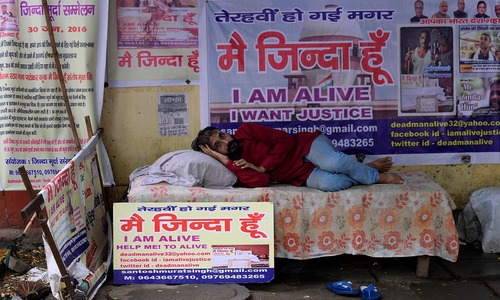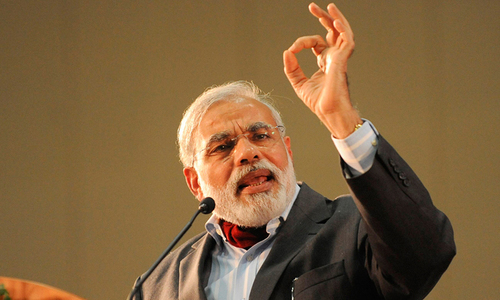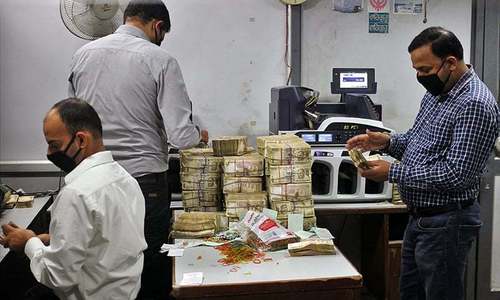Tens of thousands protest against India cash ban

Tens of thousands of people turned out Monday for nationwide protests against India's controversial ban on high-value banknotes, which opposition party organisers say has caused a “financial emergency”.
India is still reeling from Prime Minister Narendra Modi's shock decision nearly three weeks ago to pull 86 per cent of the currency from circulation overnight, triggering a chronic shortage of notes in an economy that operates almost entirely on cash.
Around 25,000 people took to the streets of the eastern city of Kolkata, capital of West Bengal state, whose left-wing Chief Minister Mamata Banerjee has warned of “riots and epidemics” if the ban continues.

An estimated 6,000 more turned out to protest in Mumbai, India's western commercial hub, police said.
But many ordinary Indians say they support the scheme if it forces the rich to pay their taxes by making them bank undeclared income. Only a handful of states observed a call for a nationwide protest strike.
“We are protesting against the undeclared financial emergency imposed by the government and the hardships people across the country are facing because of this illegal decision,” said Manish Tiwari of the opposition Congress party.

“The decision to demonetise high-value currency was done without any authority and legislation and is clearly illegal.” Owners of the banned 500 and 1,000 rupee notes have until the end of the year to deposit them in a bank, and can only directly exchange a small number for new currency.
But authorities have struggled to print enough new notes to meet demand and economists say the ensuing cash crunch will hit growth.
Former prime minister Manmohan Singh, a respected economist, said last week it would shave at least two percentage points off growth, which topped seven percent in the first half of the financial year.

“I do not disagree with the objectives but it is a monumental case of mismanagement,” the Congress party lawmaker told parliament.
“The way demonetisation has been implemented, it will hurt agricultural growth and all those people working in the informal sector.” Over 90pc of transactions in India are conducted in cash and many of the country's poorest have no access to banking.
Many have been left without enough cash to buy food or daily essentials, while farmers have been unable to buy seeds and small traders say business has fallen off a cliff.
Nonetheless Modi has repeatedly defended the scheme, accusing its detractors of being tax evaders and urging all Indians to switch to non-cash payment methods.




















































